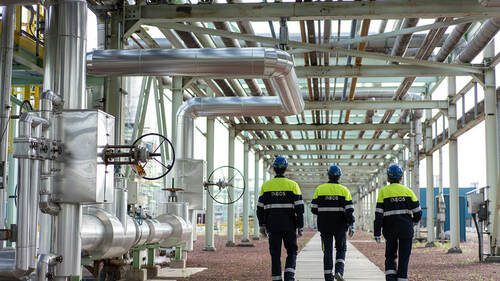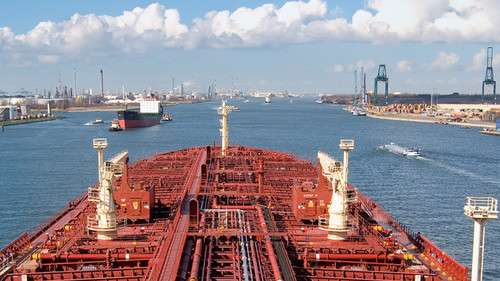INEOS Olefins Belgium submits comprehensive environmental permit application for Europe’s most environmentally friendly steam cracker in Antwerp Belgium
INEOS Olefins Belgium has submitted a comprehensive application for an environmental permit to progress the construction of Europe’s most environmentally friendly cracker, known as Project ONE.
The state of the art steam cracker will produce ethylene, which is one of the world’s most widely used raw materials, and an essential building block for a wide range of products, found in cosmetics, textiles, computers, smartphones, household appliances, food packaging and medical applications. It is also used in lightweight parts for cars and wind turbines, insulation materials for the construction industry or pipes for transporting drinking water that can last up to 100 years.
INEOS has fully taken into account comments made on its earlier permit application for the preparatory works and has responded with a fully integrated application. The application for the environmental permit includes an environmental safety report (OVR) and environmental impact report (EIR) assessing the cumulative environmental effects of the project through preparatory works, to construction and operation.
Full disclosure and communication of the application will be made as soon as it is declared complete and admissible by the Province of Antwerp. Publication will mark the start of the public consultation, which will run for 30 days and during which a public information meeting will be organised.
Developing this production site in Antwerp, is designed to meet the strict environmental standards that are in place here, renewing technology in the chemical sector in Antwerp and Flanders and resetting the benchmark in Europe.
A renewal of technology by resetting the European benchmark
Project ONE’s ethane cracker has carbon emissions three times lower than average emissions from European crackers and less than half that of the top 10% best performing European crackers today. This technological innovation will have a significant knock-on effect across Europe by raising the carbon emission standard against which other European crackers will be compared. By resetting the benchmark within the European Emissions Trading System (ETS) it raises the bar for older less efficient crackers that will have to either reduce emissions, buy allowances or close.
Project ONE targets climate neutrality within 10 years from start-up
Project ONE is designed to use the very best of today’s technology. It is also designed to integrate new technology as it becomes available, for example carbon capture and storage and the use of 100% hydrogen as a fuel. Electrification of the cracking furnaces could also be considered if the technology becomes sufficiently developed, which is still premature at the present time.
INEOS targets moving the facility to carbon neutrality within 10 years from the start-up of the cracker, using one or more of the above techniques.
Categories
Countries
Companies
Latest news
INEOS launches €250m investment supported by the French Government to secure the future of French industry at Lavera
The project marks the first phase of a long-term regeneration plan to reduce emissions, boost reliability, efficiency and competitiveness, with support of the French State.
Hycamite’s technology to decarbonize shipping awarded AiP by industry leader DNV
Kokkola Industrial Park →Hycamite’s proprietary Thermo-Catalytic Decomposition (TCD) technology offers a new approach to producing clean hydrogen by breaking down methane, the primary component of liquefied natural gas (LN...
Clariant catalysts will power the Ecoplanta: Europe's first waste-to-methanol plant
Chemmed Cluster Tarragona →Repsol is building Europe’s first plant to produce renewable methanol from urban waste The facility will use Enerkem gasification technology to produce 240 KTA of methanol Clariant will supply cata...
Lilly plans to build a new $3 billion facility to boost oral medicine manufacturing capacity in Europe for patients worldwide
Netherlands site will bring 500 manufacturing and 1,500 construction jobs while further strengthening Lilly's global supply chain


